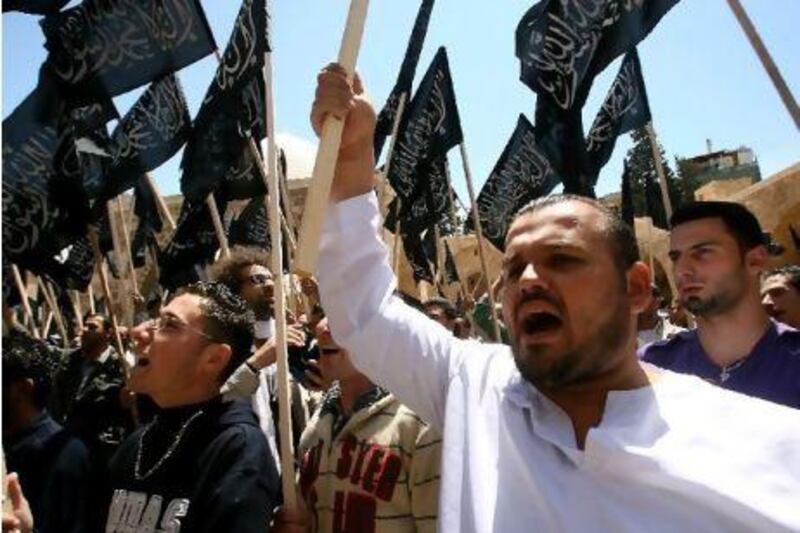BEIRUT // As the Syrian government's assault on protesters continues, countries across the Arab world and beyond are considering the longer-term, regional effects of the violence.
Israel, the United States, Iran and Saudi Arabia are all watching intently, but perhaps none more closely than Lebanon, where there are growing concerns about the destabilising effect a continuation of the Syrian uprising will have across the border.
"Syria and Lebanon are twin countries - if something happens in Syria it is bound to reverberate here," said Hilal Khashan, a professor of political science at the American University of Beirut. "This has always been the case because of the interconnection between the two countries."
What began as largely peaceful protests demanding more political freedom has spawned a full-blown government crackdown on the Syrian towns and cities where dissent is most severe. Deraa remains under siege by the Syrian military, which is believed to have cut off access to water and electricity. Activists say more than 42 people have been killed there since Monday, bringing the number of deaths to more than 450 in the six weeks since the first protests began.
While some countries are trying to increase pressure on Syria to end the crackdown, the UN Security Council remains divided, after it failed on Wednesday to agree on a statement condemning the violence.
Russia's deputy UN ambassador Alexander Pankin argued that outside interference could worsen the crisis. "It is extremely important to focus all attempts on avoiding such a dangerous turn of events, especially as Syria is a cornerstone of the Middle East security architecture," he said. "Destabilising this significant link in the chain will lead to complications throughout the region."
Lebanon, the only Arab member of the Security Council, was among the countries that blocked any condemnation of the Syrian government's use of force. Nawaf Salam, the Lebanese ambassador to the UN, told the council that "the hearts and minds" of the Lebanese people were with their Syrian neighbours, while also citing support for Syrian President Bashar al Assad's pledge to carry out reforms.
Lebanon has long been a battleground for regional powers. Although Syrian troops withdrew from Lebanon in 2005, ending a 29-year military presence in the country, Damascus still has massive political sway in the country.
Complicating matters has been the political stalemate in Lebanon. Three months after being appointed prime minister designate, Nejib Miqati has still been unable to form a cabinet. Analysts believe the crisis in Syria has contributed to the political impasse in Lebanon.
"Syria doesn't want the cabinet to be formed right now. They are weighing their options," said Prof Khashan. "If the crisis [in Syria] drags on, it will definitely have an impact on Lebanon. If that happens, the Syrian authorities will do their best to make sure the situation in Lebanon explodes."
In Lebanon, the political dynamic is increasingly being shaped along the lines of the Western and Saudi Arabian-backed March 14 faction, pitted against the Iranian and Syrian-backed Hizbollah movement and the March 8 alliance.
Hizbollah has framed the Syrian crisis as a struggle between the government and extremist groups, as opposed to a popular uprising similar to those in Egypt, Tunisia or Bahrain.
In recent weeks, Syrian authorities have accused members of outgoing prime minister Saad Hariri's Future movement of meddling in the crisis. Future movement MP Jamal al Jarrah was accused of providing money and weapons to anti-government protesters, something he has denied.
Last weekend, an anti-Assad demonstration was held by the Islamist movement, Hizb ut Tahrir, in the Lebanese city of Tripoli. Meanwhile, yesterday, there were reports of hundreds of Syrians fleeing on foot across the northern border into Lebanon, after violence broke out in the Syrian town of Tall Kalakh.
Ghaleb Qandil, a Lebanese commentator, said that if the crisis in Syria becomes more sectarian, there will be "major repercussions" for Lebanon, which is governed by a power-sharing system along religious lines.
The impact of a prolonged conflict would also hurt Lebanon's economy, he added.
"The stability of Syria is very strongly tied to that of Lebanon," he said. "All the Lebanese are worried about what is happening in Syria."
zconstantine@thenational.ae
With additional reporting by the Associated Press and Agence France-Press





